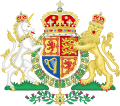This article needs to be updated.(September 2017) |
| Lands Tribunal for Scotland | |
|---|---|
 Crest of the Royal Coat of Arms of the United Kingdom in Scotland | |
| Established | 1971 |
| Jurisdiction | Scotland |
| Location | Edinburgh |
| Composition method | Appointed by the Lord President |
| Authorised by | Lands Tribunal Act 1949 |
| Appeals to | Court of Session |
| Number of positions | 3 |
| Website | www.lands-tribunal-scotland.org.uk |
| President | |
| Currently | Lord Duthie |
| Since | 9 January 2023 |
The Lands Tribunal for Scotland (Scottish Gaelic : Tribiunal Fearainn na h-Alba) is a tribunal with jurisdiction over land and property in Scotland, relating to title obligations, compulsory purchase and other private rights. The Tribunal was established under the Lands Tribunal Act 1949, which also created the separate Lands Tribunal in England and Wales and Northern Ireland.
Contents
- History
- Remit and jurisdiction
- Judges and office holders
- Presidents of the Lands Tribunal
- See also
- References
- External links
Although the statutory basis of the Lands Tribunal for Scotland was the Lands Tribunal Act 1949, the Tribunal itself was not actually created until 1971, as there was not considered a sufficient amount of work to be undertaken. The Conveyancing and Feudal Reform (Scotland) Act 1970 gave the Lands Tribunal new powers to discharge title conditions, which prompted its actual establishment in March 1971.
The Tribunal is based in George House, on George Street in Edinburgh.
